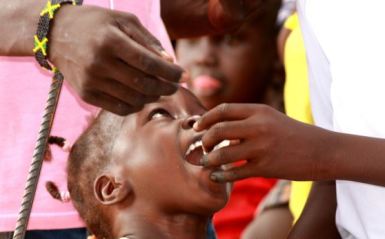IOM says additional cholera cases reported outside Juba
July 21, 2016 (JUBA) – The International Organization for Immigration (IOM) said additional cases of cholera, which spreads in Equatoria and Jonglei, have been reported in Duk and Terekeka counties in Central Equatoria and Jonglei states, respectively.

“IOM is working closely with the Health Cluster and the UN World Health Organization to respond to and mitigate the spread of cholera,” the statement said, adding, “IOM and Medair are also setting up oral re-hydration stations in Juba.”
About 14,900 people have remained displaced in Juba since fighting erupted on 7 July and continued after a ceasefire declaration between rival forces on 11 July, resulting to congestions and spread of cholera. The cases have however spread to areas and states outside of Juba.
An estimated 6,800 new arrivals are being sheltered at the UN House peacekeeping bases on the outskirts of Juba, which have already housed some 28,000 internally displaced persons (IDPs) prior to the fighting.
Over 4,000 people have also sought shelter and protection at a second UN peacekeeping base in Juba’s TongPing neighbourhood near Juba International Airport. IOM stated that their member staffs continue to observe new arrivals at the UN TongPing base, as concerns over insecurity persist.
“One suspected cholera case was identified at IOM’s primary health care clinic at Tong Ping on 16 July. The case tested RDT positive and is undergoing culture confirmation; the patient has been transferred to the Juba Teaching Hospital, where Médecins Sans Frontières (MSF) is supporting a Cholera Treatment Centre,” it said.
It added that more people continued to arrive at the site, with concerns increasing over the impact of the rainy season and the spread of other waterborne diseases. There are challenges of proper drainage, the rainy season can lead to flooding and extremely muddy conditions for IDPs.
“Good hygiene is crucial to stemming the spread of cholera,” said Kelsi Kriitmaa, IOM South Sudan migration health programme manager.
“IOM is intensifying training of health and hygiene promoters to spread basic messaging on best practices such as hand-washing and drinking safe water,” it added.
IOM said it is setting up trucking clean drinking water to the TongPing site and water and sanitation teams are building additional latrines and water points to mitigate the impact of crowding and difficult living conditions at the site.
Last week fighting in Juba has exacerbated acute humanitarian needs in South Sudan, where approximately 1.6 million people remain displaced as a result of the civil war, which erupted in December 2013.
(ST)
